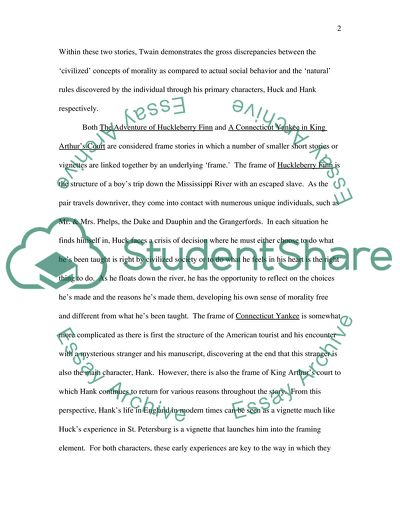Cite this document
(Morality as Defined by Mark Twain Research Paper, n.d.)
Morality as Defined by Mark Twain Research Paper. Retrieved from https://studentshare.org/literature/1723903-mark-twain-paper
Morality as Defined by Mark Twain Research Paper. Retrieved from https://studentshare.org/literature/1723903-mark-twain-paper
(Morality As Defined by Mark Twain Research Paper)
Morality As Defined by Mark Twain Research Paper. https://studentshare.org/literature/1723903-mark-twain-paper.
Morality As Defined by Mark Twain Research Paper. https://studentshare.org/literature/1723903-mark-twain-paper.
“Morality As Defined by Mark Twain Research Paper”, n.d. https://studentshare.org/literature/1723903-mark-twain-paper.


